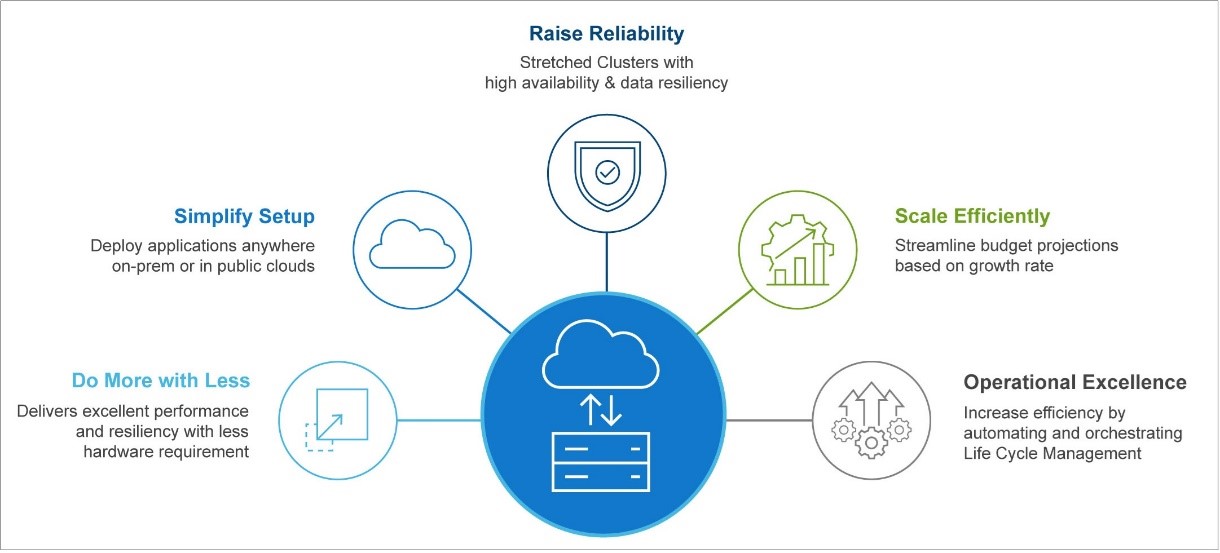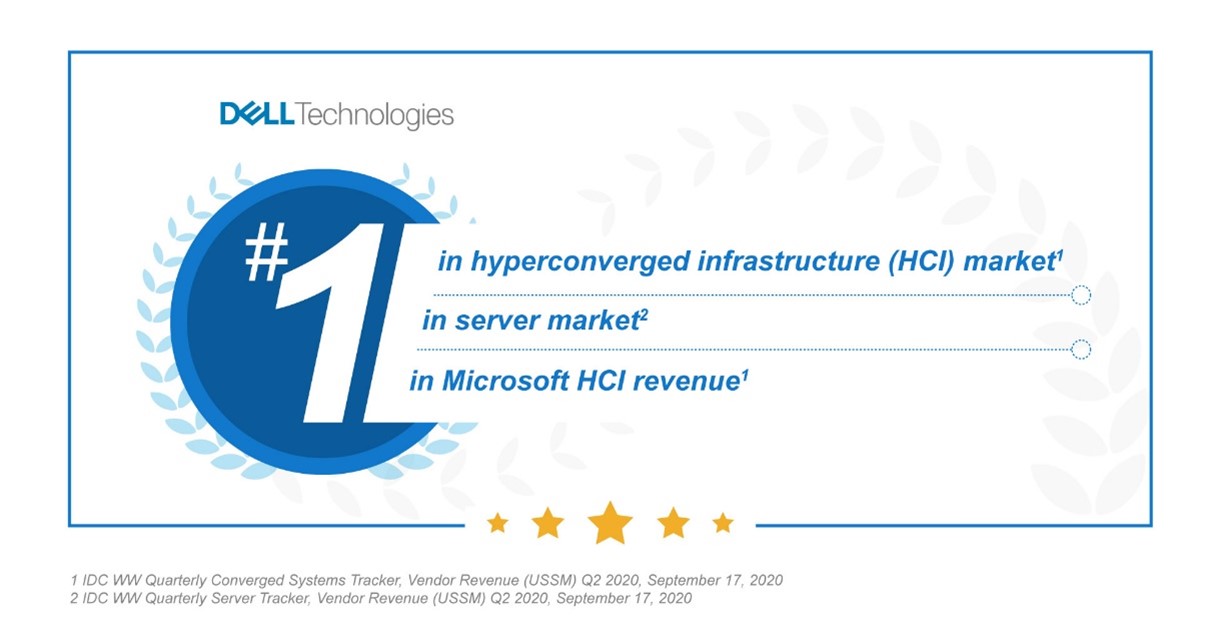Dell Technologies can help organizations in their transformation journey by simplifying the deployment and management of their infrastructure with the introduction of HCI. A modern HCI platform is ideal for refreshing aging hardware, consolidation of virtual workloads and streamlining access to public cloud services. HCI is built on a software-centric design that tightly integrates compute, storage and virtualization resources in a single platform that is easy to manage and maintain. This infrastructure is enabled without sacrificing reliability and uptime while saving time and money spent on building and maintaining IT systems.

Business goals and application requirements determine the performance that must be delivered from an HCI system. There are many possibilities when customers are equipped with an HCI appliance that can run their most critical workloads coupled with the ease of deploying applications anywhere on-premises or in a public cloud.
HCI solutions require less hardware to function when compared to three-tier architecture and provide the same great performance and resiliency as the traditional infrastructure. Organizations can realize a lower Total Cost of Ownership (TCO) with an immediate gain in productivity and reduced complexity.
HCI offers the ability to add both compute and storage capacity to the system by adding more cluster nodes. This ability is convenient for scaling resources as business needs grow. "Start with current needs and scale incrementally" is the approach used with HCI systems. Budget projections can be streamlined as organizations now know the exact number of nodes required to operate and can scale linearly and predictably depending on the business needs.
HCI provides a resilient foundation by featuring native DR for clusters combined with storage replication for volumes assuring business continuity in case if there is a catastrophic failure. Stretched clusters can be employed to spread workloads across two physical locations offering high availability and data resiliency. Automated failover recovers business services quickly, without the need of any manual intervention.
Dell Integrated System for Microsoft Azure Stack HCI (Azure Stack HCI) is an ideal solution for organizations that are refreshing and modernizing their aging virtualization environments to support high-value, highly performant workloads. This all-in-one validated HCI system includes full-stack life cycle management, native integration into Microsoft Azure, flexible consumption models, and solution-level enterprise support and services expertise. Azure Stack HCI offers a broad portfolio of intelligently designed AX nodes that are workload-focused and validated with deliberately selected hardware components and BIOS, firmware, and driver revisions.
Dell Technologies is your single source for design, purchase, rack and stack, deployment, and comprehensive hardware and software support for Microsoft Azure Stack HCI solutions. Microsoft has consolidated all management tools into a single intuitive server management experience with Windows Admin Center (WAC) which modernizes and simplifies IT operations. Customers benefit from the Dell OpenManage Integration with Microsoft Windows Admin Center, which provides deep hardware monitoring, inventory, and troubleshooting capabilities. It also has 1-Click Full Stack Lifecycle Management using Cluster-Aware Updating, automated cluster creation, dynamic CPU core management, and cluster expansion features.

The Evolution of Datacenters to HCI and Hybrid Cloud chapter describes about how data centers have evolved over the years and how the hybrid cloud and HCI are becoming the new norm for modern infrastructures.
